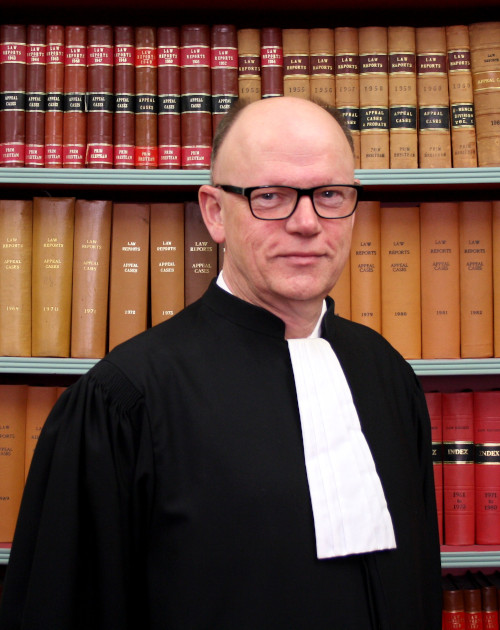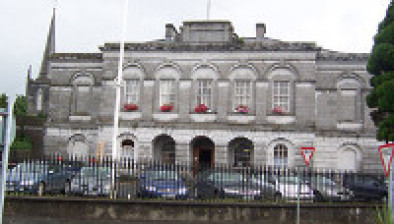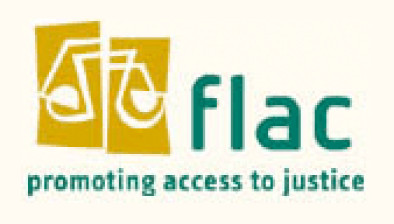Chief Justice: Civil legal aid reform system comparable to pre-1970s healthcare

Chief Justice Donal O'Donnell
Chief Justice Donal O’Donnell compared the provision of civil legal aid in the State to the provision of healthcare before the major reforms of the 1970s as he launched a new report on access to justice today.
A 90-page report of the speeches delivered and issues explored during the two-day conference on access to justice which took place earlier this year was today presented to the justice minister, Helen McEntee.
Speaking at the launch, Mr Justice O’Donnell pointed out that Ireland’s current health budget is around €23.4 billion and “due to overrun”, while only €50 million has been allocated for legal aid.
“I am not suggesting there should be a simple equivalence,” he said. “Instead, I think it is useful to think back to those times not so long ago before, for example, the Health Act of 1970, and consider what people did if they experienced serious health problems, and before there was a widespread entitlement to healthcare in the community and the infrastructure to provide it.”
Those who could not afford medical assistance were “dependent on voluntary bodies, charities, the goodwill of the medical profession, and sometimes were driven to seek self-help solutions, and could fall victim to charlatans or shamans, or, as must have happened in many cases, simply suffered in silence”, he said.
“This is an instructive comparison if we consider the picture today where legal aid is only available on restricted grounds, subject to unrealistic means test thresholds, and provided by an under-resourced and over-stretched organisation,” he pointed out.
“People receive assistance from voluntary groups, from some admirable charities, and from the long tradition of goodwill within the professions, but many others are sometimes driven to resort to self-help or fall into the clutches of those outside the legal professions offering deceptively cheap and simple solutions, or simply suffer in silence.”
Mr Justice O’Donnell highlighted the contribution at this year’s conference of Professor Dame Hazel Genn, who said the provision of legal assistance “can be preventative and was like providing a fence at the top of a cliff, rather than simply an ambulance at the bottom”.
The judge said: “Many problems can be headed off, and the people who suffer significant legal issues are also those who suffer social deprivation and experience many health problems. One development in the UK was making legal assistance available in the same way and in the same place as healthcare is made available in the middle of communities.”
He added: “If the Law Centres of the Legal Aid Board did not exist, then I think very many people would find themselves in the position of those with serious health problems in the late 19th or early to mid-20th century, where access to advice was a matter of luck and where many — if not most people — simply suffered in silence.”
Receiving the report, Mrs McEntee said: “I am determined to drive the significant reform needed to deliver access to justice for all. At the conference early this year we announced our plan to dramatically increase the number of judges following publication of the report of the judicial planning working group and appointments have already begun.
“I know how important these appointments are. We all know the benefits they will bring: a faster, more effective justice system; more cases being heard promptly and shorter waiting times. Judicial numbers and resourcing are key to facilitating greater access to justice.
“We will complement these new appointments by ensuring adequate support staff and accommodation are in place across the courts estate. Linked to this step change in resourcing is the important work underway to modernise how our courts operate, deliver on the Family Justice Strategy and the Review Group on Administration of Civil Justice.
“I am also pleased to note the progress being made on the review of civil legal aid. The review group is now considering the results of a comprehensive multi-phased process of consultation. They are also examining how legal needs are met in other jurisdictions. I look forward to receiving the group’s report later this year.”
Welcoming the report, Eilis Barry, chief executive of legal rights charity FLAC, said: “As a member of both the Chief Justice’s working group on access to justice and the Department of Justice’s civil legal aid review group, FLAC regard this as a pivotal time in the pursuit of access to justice for all.
“The publication of this report will hopefully provide insight and inspiration for the civil legal aid review into what a model legal assistance system would look like.
“The insights and learnings from this report point to the need for a radically different system of public legal assistance which is designed from the perspective of the user, with targeted legal services aimed at specific groups and outreach services to reach those most in legal need, with an emphasis on prevention and early legal advice.
“It would bring legal services to where people are and embed them within community and health settings.”










